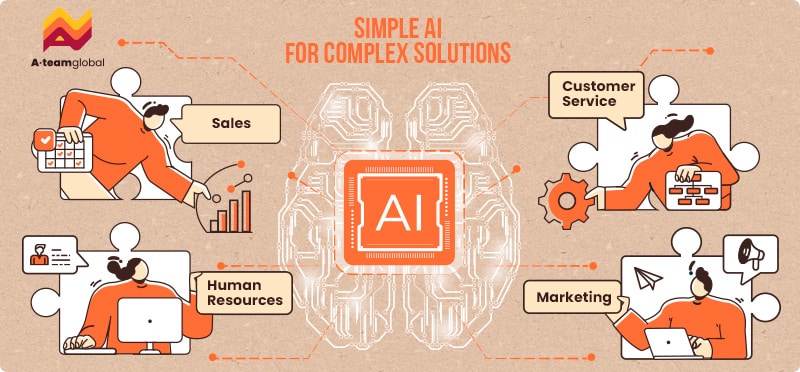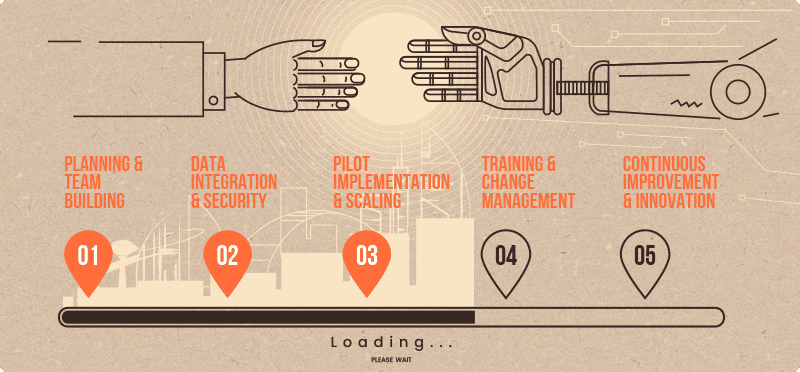
In the fast-paced realm of web development, one big question that often comes up among us developers is whether to roll with PHP or ASP.NET. It's like choosing the right superhero for the job – they've got their own strengths and quirks. PHP and ASP.NET, these two heavyweights, each bring something unique to the table, making it a bit of a head-scratcher for us to pick the right one. This article is all about untangling that web (pun intended!) as we dive into the PHP vs ASP.NET face-off, breaking down what makes each of them tick and helping fellow devs figure out which one suits their capes... I mean, code, best.
Both web development frameworks are incredibly popular and spread over the globe in terms of being incredibly useful for web development. On one hand, PHP is a framework applied by many web development professionals all over the world. However, Asp.Net also firmly takes its lead. That is why it can be a bit challenging in choosing one of them for your project or business. But let’s consider both of them and try to think about not only their popularity but their possible pros/cons, and elaborate on them.
PHP as a Web Development Language
Currently, PHP is still on top of computer languages, according to Statistics Times. Despite the emergence of many new languages, PHP technology is still capturing its wide use.
PHP definitely has a landscape of applications. It is not only a language, it creates a whole system of development processes. It was developed more than 25 years ago and is still alive. Since that time, it has been modified and used generously for software creation. Nowadays, it is a robust web development tool, and among possibilities and other tools it contains, it is used to write even web servers. This is something that other languages and frameworks can’t do.
PHP is still incredibly flexible, despite its long history. It is being constantly reviewed and revised. For example, the newest version of it has a number of powerful options. Such as processing tools and improved databases.
Generally, PHP is empowerment for those industries that require dynamic content. Besides, it supports mobile apps too. WordPress, Etsy, Slack, Wikipedia, is just a small list of giant companies and projects that were built on PHP. There are so many great projects developed with its help all over the world. In addition, it is free and open-source.
How about ASP .Net?
In comparison, Asp.net is a framework, not a pure computer language. Besides, it has been developed by Microsoft, so it has strong and solid support in its face. Asp.Net technology is good to work on scalable web apps. Nowadays, it is an open-source framework.
In addition, there is a general misconception that the languages applied in web development determine the general speed and web page performance. Well, in this case, both our heroes function perfectly. Both frameworks are equally performing well in terms of database interaction, images display, web server’s work, and provide a dynamic UI/UX.
ASP.Net is not the easiest computer language for web development. mainly it is not easy to start with it for the newbies. But it is relatively easier in maintenance for the coding process.
PHP vs ASP.NET: Which One's Friendlier for Beginners?
1. Learning the Ropes
When it comes to picking up a new language, PHP seems to be the friendlier companion. It's like the easygoing buddy you can count on. Why? Well, its simple language rules and tons of helpful guides make it a sweet spot for beginners. On the flip side, ASP.NET, while powerful, might feel a bit like diving into the deep end, especially if you're not familiar with Microsoft's tech world.
2. Finding a Helping Hand
Now, let's talk about support. PHP has a massive fan club – a community so big it's practically a digital city! That means, if you ever get stuck, there's a good chance someone in this bustling community has faced the same issue. On the other hand, ASP.NET has its own crew, thanks to the mighty Microsoft backing. It's like having a tech-savvy mentor always ready to lend a hand.
3. Where Can You Hang Out?
PHP is like a globetrotter – it doesn't care where it is, it just works. Operating systems? It's cool with all of them. On the other side of the spectrum, ASP.NET used to be the Windows devotee. But guess what? It's been hitting the gym and is now flexing with .NET Core, playing nice with all platforms. Cross-platform development – it's like ASP.NET's new hobby.
Here is a table summarizing the key differences between PHP and ASP.NET:
| Feature | PHP | ASP.NET |
|---|---|---|
| Licensing | Open source | Free for development, but requires a paid license for production use |
| Platform compatibility | Can be run on Windows, macOS, and Linux | Can only be run on Windows |
| Syntax | Easy to understand and learn | More complex syntax than PHP |
| Community | Large and active community | Smaller community than PHP, but still active |
| Performance | Can be slow for large applications | More performant than PHP |
| Features | Less comprehensive than ASP.NET | More comprehensive than PHP, with a wider range of features and pre-built components |
PHP vs ASP.NET - what to pay attention to when choosing?
There is a series of questions to answer before making a choice between PHP vs. ASP.NET. For example, ask yourself the following:
What is the size of my business and its scale?
This is something to consider before making a choice, as each of our story heroes may be more suitable as to the size and scale.
How about my industry and type of business?
It matters, as not every computer language may be helpful enough for your field.
What is the level of support both can provide?
Is it even there?
What is the budget?
How much are you ready to spend?
How widespread and popular is the target framework?
The latter may be an issue to get enough professionals that know these languages. The more popular it is, the more people learn and use it for web development.
But let’s dig further into the advantages and disadvantages of PHP / ASP.Net. However, in some cases, it is not an issue at all, as only productivity may matter.
ASP .Net: Pros and Cons
| Pros | Cons |
| incredibly flexible in terms of project and web app scale | community is rather small |
| can co-exist with a number of other frameworks and languages | works predominantly with Windows |
| high level or error fixing possibilities | not the easiest one to learn |
| the best thing to work on Windows | |
| great User Interaction possibilities | |
| allows conducting a fast development process | |
| speedy | |
| can be easily set up | |
| works well for web apps development | |
| rich for tools | |
| easily manageable | |
| works better for medium and large scale |
PHP: Pros and Cons
| Pros | Cons |
| free and open-source | not for every project |
| works better for small & medium size projects | has some debugging issues |
| server-side | can run a bit slow |
| has a long history and many professionals, who know it and use it | poor errors handling |
| easy to learn, easy to apply | not for desktop development |
| great for database functioning and communication |
Conclusion
In order to carry out a fair comparison, it is important to gather and analyze all aspects of both PHP and ASP.Net. That is what we were trying to do here as short and as objective as possible.
In any possible case, the choice depends on the requirements the project/business has. Each of the above mentioned can be suited to one thing or another. It is not the matter of being ‘better’ but a matter of being more appropriate and suitable to the need.
Both frameworks are fairly comparable and in use. Each of them has their drawbacks in various aspects of functioning, as well as strengths. It is useless to make further comparisons without a provided context. In facing the harsh need to choose the most suitable one, it is sometimes better to refer to professionals, which are keen on that. Technical requirements smatter the most, as well as budgetary. Professionals are there for you so you would be less confused about what is used for what.
As the final bell rings, the PHP vs. ASP.NET match concludes without a clear knockout. The choice between PHP and ASP.NET ultimately depends on the specific needs of the project and the preferences of the developers involved. Whether you favor the nimble agility of PHP or the enterprise-grade power of ASP.NET, both contenders have proven their worth in the dynamic arena of web development.
you may also want to read

Leveraging Local LLMs and Secure Environments to Protect Sensitive Information
In the rapidly evolving digital landscape, businesses are increasingly adopting Generative AI (GenAI) technologies to stay competitive and innovate. Large...

Boost Efficiency Today: Easy AI Integration for Immediate Results
In the past, the idea of integrating artificial intelligence into your business might have felt like venturing into uncharted territory—complex,...

A Roadmap to Gen AI Adoption for Small and Medium Businesses
Unlock new opportunities by integrating Generative AI into your business operations. In today’s fast-paced digital landscape, small and medium businesses...
